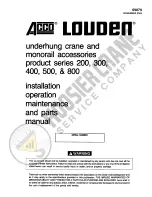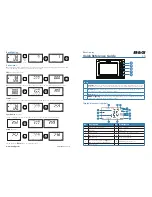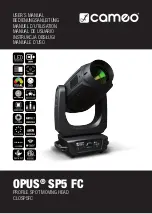
27
Human NIBP Nano
Owner’s Guide
Selecting a fi nger switching interval
The selection of a finger switching interval depends on the kind of
measurement you are going to perform. For measurements longer than
1 hour always select finger switching, since a prolonged measurement on
one finger can be unpleasant for the volunteer.
Four finger switching periods can be selected: 1, 15, 30 and 60 minutes. The
1-minute finger switching interval is for maintenance purposes only. It can
also be used to get a quick impression of the blood pressure measurement
in two fingers before starting a 24 hour blood pressure measurement.
However, you should realize that a measurement for only a minute will not
provide a stable or reliable blood pressure reading.
The selection of one of the three remaining finger switching intervals
depends on the protocol of the measurement. In the first 1-3 minutes aft er
a finger switching procedure the blood pressure values are less reliable.
Finger cuff switching should be turned off in measurements of up to one
hour that you do not want to be interrupted by a finger switching procedure.
Also, to avoid analysis problems due to pressure diff erences between
fingers, it is recommended to use the same finger in measurements of up
to one hour (see following section).
Note: The Human NIBP Nano System should be configured to switch finger
cuff s at regular intervals when measuring for longer periods (> 2 hours)
without interruption.
Relationship between fi nger arterial pressures
in a two-fi nger switching measurement
Finger arterial pressures from the index, middle and ring fingers are
not necessarily equal, although diff erences are usually small. In some
measurements a pressure diff erence between fingers is observed. This
can be caused by either physiological diff erences between fingers or
diff erences in cuff application or both.
If a cuff is not wrapped tightly enough, i.e., when it is too easy to pull the
cuff from a finger, blood pressure readings will be too high. This is caused
by a pressure gradient over the air bladder when the air bladder is inflated
too much. The Human NIBP Nano Interface then needs to apply a higher
cuff pressure to achieve the same diameter changes in the finger artery.
Likewise, if a cuff is too small and is wrapped (much) too tightly, as is
illustrated in Figure 2–10, blood pressure readings may be too low.
















































